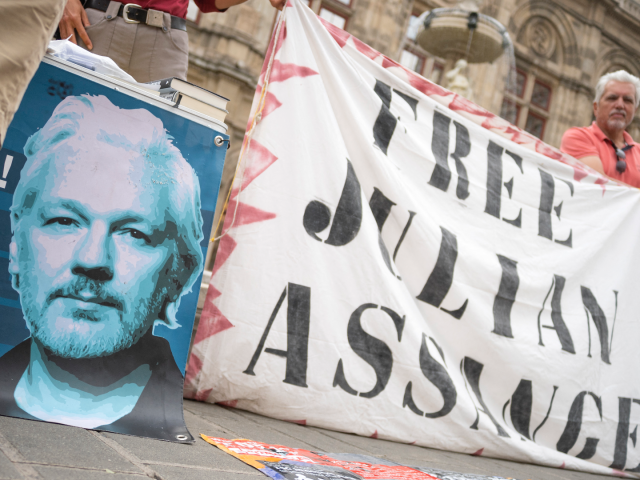British Home Secretary Priti Patel has approved the extradition of WikiLeaks co-founder Julian Assange to the United States, where he faces up to 175 years in prison on charges of espionage and computer misuse.
The years-long battle over the fate of Julian Assange was passed to Home Secretary Priti Patel after a Supreme Court judge in Britain ruled that the Wikileaks co-founder could be extradited to the U.S., despite a previous court ruling that blocked the move over concerns of the heightened risk of Assange committing suicide in an American prison.
According to a report from The Guardian, Patel had determined that the extradition request from American authorities passed all legal thresholds, including promises to not seek the death penalty against Assange.
Though Patel ruled on Friday that the extradition can go ahead, it is expected that Assange’s legal team will launch another appeal, which will likely rely heavily on arguments that the extradition has been politically motivated and over the freedom of expression rights of journalists.
A Home Office spokesperson said: “On 17 June, following consideration by both the magistrates’ court and high court, the extradition of Mr Julian Assange to the US was ordered. Mr Assange retains the normal 14-day right to appeal.
“In this case, the UK courts have not found that it would be oppressive, unjust or an abuse of process to extradite Mr Assange.
“Nor have they found that extradition would be incompatible with his human rights, including his right to a fair trial and to freedom of expression, and that whilst in the US he will be treated appropriately, including in relation to his health.”
Commenting on the decision, a statement from WikiLeaks said: “This is a dark day for press freedom and for British democracy. Anyone in this country who cares about freedom of expression should be deeply ashamed that the Home Secretary has approved the extradition of Julian Assange,” and repeated former claims that the U.S. government had plotted to assassinate the Australian national in retaliation for his leaking CIA data.
“Julian did nothing wrong. He has committed no crime and is not a criminal. He is a journalist and a publisher, and he is being punished for doing his job.”
WikiLeaks vowed to launch another appeal at the High Court and promised to launch “louder” protests on the streets of Britain to make sure “Julian’s story” will be “known to all”.
The United States had called on the UK to extradite Assange to America so that he could stand trial for 17 counts of espionage and computer misuse, with American authorities alleging that the WikiLeaks founder had illegally assisted U.S. Army intelligence analyst Chelsea Manning to steal classified documents from diplomatic cables and military files.
WikiLeaks was accused of putting the lives of American intelligence officials and sources at risk by publishing the material from Manning.
Mr Assange’s legal team has argued that the information published by WikiLeaks relating to U.S. military activities and alleged wrongdoing in Iraq and Afghanistan should be protected under the First Amendment, with previous leaks of classified information, such as the Pentagon Papers released by the New York Times, having been determined by the Supreme Court to have been lawful under the First Amendment.
In an interview with Breitbart London in 2020, Assange’s father, John Shipton said: “I hope Americans look to their government and insist that their government follows the First Amendment thoroughly.”
Follow Kurt Zindulka on Twitter here @KurtZindulka

COMMENTS
Please let us know if you're having issues with commenting.